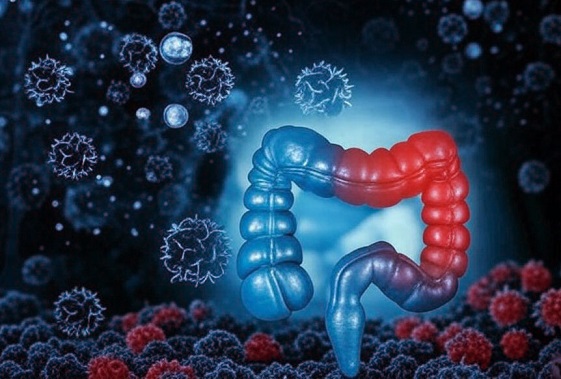Nikhil Prasad Fact checked by:Thailand Medical News Team Jul 17, 2025 6 months, 5 days, 28 minutes ago
Thailand Medical News: New Study Links Shingles After COVID to Long Term Cancer Risk
A new international study has found that people who get shingles after recovering from COVID-19 may face a higher risk of developing colorectal cancer, along with other serious health complications. The research was conducted by scientists from institutions including Taipei Tzu Chi Hospital, Fu Jen Catholic University Hospital, the National Defense Medical Center, and the Queensland University of Technology. This
Thailand Medical News report warns that shingles, also known as herpes zoster, could be a sign of immune system problems that remain after a COVID-19 infection.
 Higher Risk of Colon Cancer in COVID-19 Survivors with Shingles
Higher Risk of Colon Cancer in COVID-19 Survivors with Shingles
The study looked at data from over 10 million adult patients across 144 healthcare organizations globally, using the TriNetX database. Researchers found that nearly 28,000 COVID-19 survivors later developed shingles. Among this group, those between 55 and 60 years old were carefully matched with similar patients who did not develop shingles to fairly compare health outcomes.
Increased Cancer and Health Risks in Post COVID Shingles Patients
The results were alarming. People who developed shingles after COVID-19 were:
-71% more likely to develop colorectal cancer
-80% more likely to suffer from sepsis
-73–80% more likely to experience acute respiratory failure
-55–67% more likely to face major cardiovascular events like heart attacks
Even though the actual number of new colorectal cancer cases remained small, the difference between groups was statistically significant. At the end of a three-year follow-up, the COVID-19 patients who got shingles had a noticeably higher chance of developing cancer compared to those who did not.
Infections like herpes zoster often occur when the immune system is weakened. The researchers suggest that COVID-19 may leave behind lasting damage to the immune system, making it harder for the body to fight off infections and detect or stop the growth of cancer cells.
Key Risk Groups Identified
The study also found that older adults and people with chronic conditions like diabetes, high blood pressure, or kidney problems were especially vulnerable. Men were more at risk than women, and inflammation markers like high C-reactive protein levels were associated with worse outcomes.
The researchers believe that herpes zoster could be used as a warning signal to identify patients who need closer medical follow-up after COVID-19 recovery. They recommend earlier screening for colorectal cancer and more aggressive health monitoring in these high-risk individuals.
Why This Matters
The long-term effects of COVID-19 are still being studied, but this research adds to growing evidence that the virus can have serious health impacts far beyond the initial infection. As mil
lions of people around the world continue to recover from COVID-19, these findings could help guide medical professionals to catch dangerous conditions like colorectal cancer earlier and potentially save lives.
The study findings were published in the peer reviewed journal: Cancers
https://www.mdpi.com/2072-6694/17/14/2306
For the latest COVID-19 News, keep on logging to
Thailand Medical News.
Read Also:
https://www.thailandmedical.news/news/breaking-covid-19-triggers-rna-protein-that-fuels-cancer-progression
https://www.thailandmedical.news/news/breaking-news-study-alarmingly-finds-that-sars-cov-2-s-and-n-proteins-drive-invasion-abilities-of-colon-cancer-cells,-resulting-in-rapid-metastasis
https://www.thailandmedical.news/news/herbs-and-phytochemicals-essential-oils-from-calocedrus-formosana-have-anticancer-properties-against-colon-cancer-cells-by-targeting-sirt1
